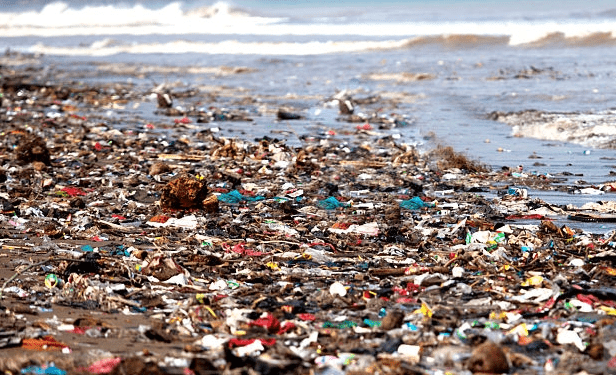
10 Environmental Factors in Nigeria
Environmental Factors In Nigeria Nigeria, located in West Africa, is a country that is rich in natural resources and biodiversity but also faces significant environmental challenges. These include deforestation, desertification, oil spills, and pollution. Climate change is also a major concern, as Nigeria is particularly vulnerable to the impacts of rising temperatures and changing rainfall patterns.
The country’s rapidly growing population and economy also put a strain on its natural resources, making effective management and conservation of the environment crucial for sustainable development. Additionally, illegal activities such as illegal logging, poaching, and illegal mining are also factors that contribute to the damage to the environment. 10 Environmental Factors in Nigeria
👉 Relocate to Canada Today!
Live, Study and Work in Canada. No Payment is Required! Hurry Now click here to Apply >> Immigrate to CanadaRead Also: 10 Factors Affecting Immunization In Nigeria
What are Environmental Factors?
Environmental factors are external conditions, circumstances, and influences that can affect the growth, development, and survival of living organisms. These factors include physical factors such as temperature, light, and water, as well as biological factors such as the presence of other organisms and their interactions.
They also include factors such as pollution, climate change, and land use. Some environmental factors can be beneficial for an organism, while others can be harmful. Understanding the environmental factors that affect a particular organism or ecosystem can help scientists and conservationists make informed decisions about how to protect and manage these resources.
Types of Environmental Factors in Nigeria
There are several types of environmental factors in Nigeria, some of which include:
- Physical: These include factors such as topography, climate, soil, and natural resources. In Nigeria, physical factors include the country’s diverse landscape, which ranges from coastal regions to highlands, and its tropical climate. Information Guide Nigeria
- Biological: These factors include the presence of plants and animals in an area, as well as the overall ecosystem. In Nigeria, biological factors include the country’s diverse array of flora and fauna, as well as the impact of human activities on these ecosystems.
- Chemical: These factors include the presence of pollutants and toxins in the environment. In Nigeria, chemical factors include the impact of industrialization and urbanization on air and water quality, as well as the use of pesticides in agriculture.
- Socio-economic: These factors include the impact of human activities on the environment, such as population growth, urbanization, and economic development. In Nigeria, socio-economic factors include the impact of oil production on the environment and the negative effects of poverty on natural resources.
- Political: These factors include the policies and regulations put in place by the government to protect the environment. In Nigeria, political factors include the country’s lack of effective environmental laws and enforcement mechanisms, as well as the impact of corruption on the ability to address environmental issues.
Read Also: Environmental Factors Affecting Agricultural Production in Nigeria
Advantages of Environmental Factors in Nigeria
Nigeria has a diverse range of environmental factors that can provide many advantages for the country. Some of these advantages include: Duties of A Domestic Violence Counselor
- Natural Resources: Nigeria is rich in natural resources such as oil, gas, and minerals which can provide a strong source of income for the country.
- Agriculture: Nigeria has a large and fertile land area, which is suitable for agriculture. This can provide food security for the country and also create export opportunities.
- Tourism: Nigeria has a diverse range of natural attractions such as beaches, national parks, and wildlife which can attract tourists and provide income for the country.
- Climate: Nigeria has a tropical climate which allows for year-round agriculture and also supports a wide variety of plant and animal life.
- Water: Nigeria has abundant water resources such as rivers, lakes, and groundwater which can be used for irrigation, power generation, and other purposes.
It should be noted that these environmental factors can also have negative impacts if not properly managed, such as the impact of oil spills on the environment, overfishing, and deforestation. JAMB Portal
Read Also: Factors Affecting Education in Nigeria
👉 Relocate to Canada Today!
Live, Study and Work in Canada. No Payment is Required! Hurry Now click here to Apply >> Immigrate to CanadaEnvironmental Factors in Nigeria
Nigeria, like many other countries, faces a variety of environmental challenges. Some of the key issues include:
-
Deforestation:
Nigeria has experienced significant deforestation in recent years due to illegal logging, agricultural expansion, and urban development. This has led to the loss of biodiversity and increased carbon emissions.
-
Oil Spills:
Nigeria is a major oil-producing country, and oil spills are a frequent occurrence. These spills have devastating effects on the environment, including contamination of water and soil, and harm to wildlife and coastal communities. Duties of an electrical systems engineer
-
Water Pollution:
Nigeria’s rapidly growing population and industrialization have led to increased pollution of its rivers and lakes. This can have serious health impacts on local communities and damage aquatic ecosystems.
-
Solid Waste Management:
Nigeria has a poor record of managing its solid waste, which leads to health hazards and environmental degradation.
-
Climate Change:
Nigeria is particularly vulnerable to the impacts of climate change, such as sea level rise, increased frequency and intensity of extreme weather events, and changes in rainfall patterns. NYSC Portal
Read Also: 10 Factors Affecting Judicial Review in Nigeria
-
Air Pollution:
Nigeria’s rapidly growing cities and industries have led to increasing levels of air pollution. This causes respiratory problems and other health issues for people living in affected areas.
-
Soil Erosion:
Nigeria’s heavy rainfall and lack of vegetation in some areas lead to soil erosion, which can make it difficult for crops to grow and can cause landslides. Romantic Love Messages
-
Biodiversity Loss:
Nigeria is home to a wide variety of plant and animal species, but many of these are under threat due to habitat destruction and other human activities.
-
Inadequate Infrastructure:
Nigeria’s infrastructure is often inadequate to support its growing population and economy. This can lead to problems such as inadequate sanitation, water supply, and waste management.
-
Land Degradation:
Nigeria’s population growth and land-use changes have led to land degradation in many parts of the country. This makes it difficult for farmers to grow crops and can have negative impacts on biodiversity.
Read Also: 10 Factors Affecting Leadership in Nigeria
Conclusion
Nigeria faces a range of environmental challenges including deforestation, oil spills, and poor waste management. These issues not only harm the natural environment but also have significant impacts on the health and livelihoods of local communities. Addressing these challenges will require a combination of government action, community engagement, and private-sector investment. All stakeholders need to work together to protect and preserve the environment for future generations. Good Morning Love Message








